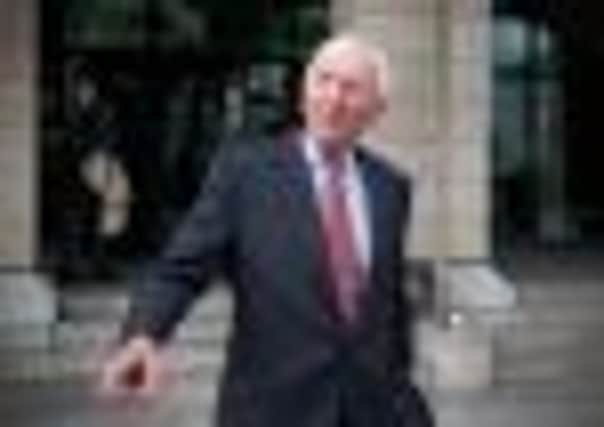Sir David Walker: banks ‘must put integrity before their profit’


Walker, who is set to replace Marcus Agius as chairman of the scandal-hit bank in November, also said banks should be forced to disclose how many staff make more than £1 million a year.
At the Parliamentary Commission on Banking Standards, he said: “Making quick returns and keeping abreast of competition overtook old-fashioned concerns about integrity.”
Advertisement
Hide AdAdvertisement
Hide AdWalker, who authored a 2009 report into corporate governance at banks, said the industry’s integrity had been damaged by a race for market share. He said: “Reputation should be the driver and profit should come second in any choice. I would start by changing the remuneration structure and inappropriate incentivisation.”
However, he criticised European proposals to cap bankers’ bonuses as “retrograde”, arguing the industry was still “a very considerable British success story”.
The commission, set up in the wake of Barclays’ record £290m fine for rigging Libor, has been asked to report on proposals for legislative action by 18 December so the UK government can include any of its recommendations in its Banking Reform Bill.
The Bank of England is to assume responsibility for the day-to-day supervision of Britain’s banks from next year, and yesterday the European Commission said it wants to make the European Central Bank (ECB) the sole supervisor for all 6,000 banks in the 17 countries that use the single currency.
The move was greeted with caution by Germany – Europe’s largest economy – and the British Bankers’ Association, which warned that the creation of a “two-tier” system might pose a threat to economic recovery.
Under the plans, the ECB would be able to issue or withdraw banking licences, approve large mergers and acquisitions, investigate banks and impose fines for breaches of the rules.
European Commission president Jose Manuel Barroso said it was “presenting legislative proposals for a single European supervisory mechanism. This is a quantum leap – the stepping stone to a banking union.”
Although Prime Minister David Cameron backs a closer banking union within the eurozone area, a spokesman for the Treasury said any such moves must “also respect the integrity of the single market for the whole of the European Union”. That view was echoed by Anthony Browne, chief executive of the British Bankers’ Association.
Advertisement
Hide AdAdvertisement
Hide AdHe said: “The single market is Europe’s biggest asset. Any splintering into a two-tier financial services market would threaten the ability of businesses across Europe to raise money for investment and would hamper economic recovery.”
Germany said the ECB would be overstretched if it had to supervise all 6,000 eurozone banks. Chancellor Angela Merkel and finance minister Wolfgang Schäuble said it would be more effective if it had responsibility only for the largest lenders.
The EC hopes its proposals will begin to take effect on 1 January. Its plans will be discussed by finance ministers of the 27 EU states, including Chancellor George Osborne, at a summit in Cyprus this week.